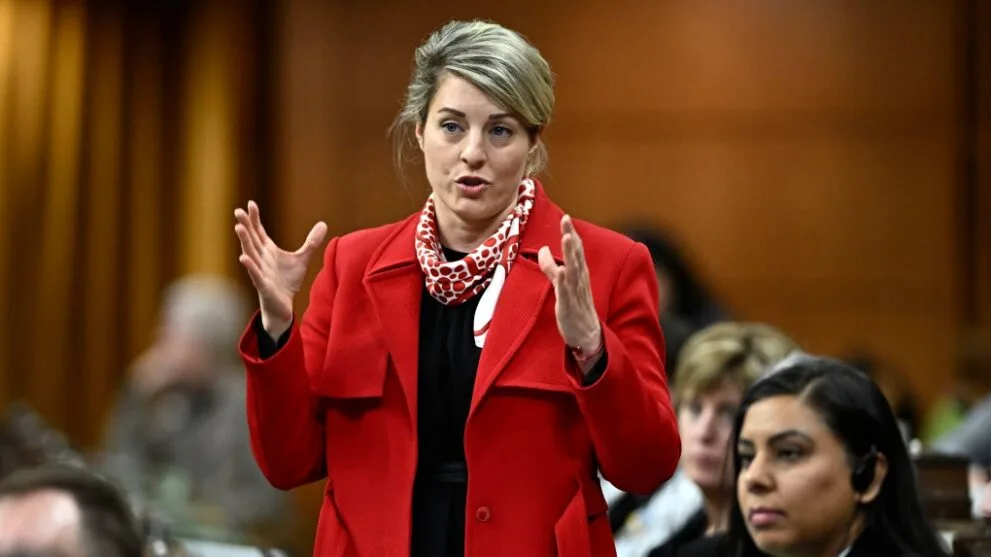Ottawa – Dominic LeBlanc, Minister of Public Safety, Democratic Institutions and Intergovernmental Affairs, announced that the Government of Canada has listed the Islamic Revolutionary Guard Corps (IRGC) as a terrorist entity under the Criminal Code, effective today.
Based on their actions, there are reasonable grounds to believe that the IRGC has knowingly carried out, attempted to carry out, participated in or facilitated a terrorist activity, or has knowingly acted on behalf of, at the direction of, or in association with an entity that has knowingly carried out terrorist activity. Listing the IRGC means that they are a terrorist group.
The decision to list the IRGC through the Criminal Code listing regime sends a strong message that Canada will use all tools at its disposal to combat the terrorist activity of the IRGC, conducted both unilaterally and in knowing association with listed terrorist entities such as Hizballah and Hamas.
As a now-listed entity, the IRGC meets the definition of a “terrorist group” under Canada’s Criminal Code. As an immediate consequence of this listing, Canadian financial institutions, such as banks and brokerages, are required to immediately freeze the property of a listed entity. It is a criminal offence for anyone in Canada and Canadians abroad to knowingly deal with property owned or controlled by a terrorist group.
Listing can also assist Canadian security, intelligence and law enforcement agencies to combat terrorism, including by helping to facilitate the laying of terrorism charges against perpetrators and supporters of terrorism. The terrorist listings mechanism plays a key role in countering terrorist financing. A listing can also help block sympathizers in Canada from providing assistance to terrorist groups.
Today’s listing builds on Canada’s previous actions, which were already some of the strongest in the world against the Iranian regime, including:
- The Government of Canada has listed several terrorist entities that have benefited from the IRGC’s patronage and that have helped advance Iran’s interests and foreign policy. These include Hizballah, Hamas, the Palestinian Islamic Jihad, and the Taliban. Furthermore, in June 2019, Canada added three new Iran-backed groups to the Criminal Code terrorist list: the Al-Ashtar Brigades, Harakat al-Sabireen, and the Fatemiyoun Division.
- In November 2022, Canada designated the Islamic Republic of Iran as a regime that has engaged in terrorism and systematic or gross human rights violations. As a result, under the Immigration and Refugee Protection Act, thousands of senior Iranian government officials, including top IRGC members, are inadmissible to Canada. In addition to being banned from entering the country, current and former senior Iranian government officials who are in Canada may be investigated and removed.
- Since October 2022, Canada has imposed 18 rounds of sanctions under the Special Economic Measures (Iran) Regulations and the Justice for Victims of Corrupt Foreign Officials Act (JVCFOA) to target individuals and entities involved in gross and systematic violations of human rights and threats to international peace and security. A total of 200 Iranian individuals and 250 Iranian entities are listed under Special Economic Measures Act (SEMA) and the JVCFOA. These measures effectively freeze any assets the listed individuals and entities may hold in Canada.
The Government of Canada will continue to fight terrorist threats to Canada, people in Canada and its interests around the world.
“The Iranian regime has consistently displayed a complete disregard for human rights, both inside and outside Iran, as well as a willingness to destabilize the international rules-based order. Listing the IRGC builds on the Government of Canada’s broader efforts to ensure that there is no impunity for Iran’s unlawful actions and its support of terrorism. Our government will always promote human rights and take action against those seeking to disrupt our way of life, here in Canada and around the world.” – Dominic LeBlanc, Minister of Minister of Public Safety, Democratic Institutions and Intergovernmental Affairs








